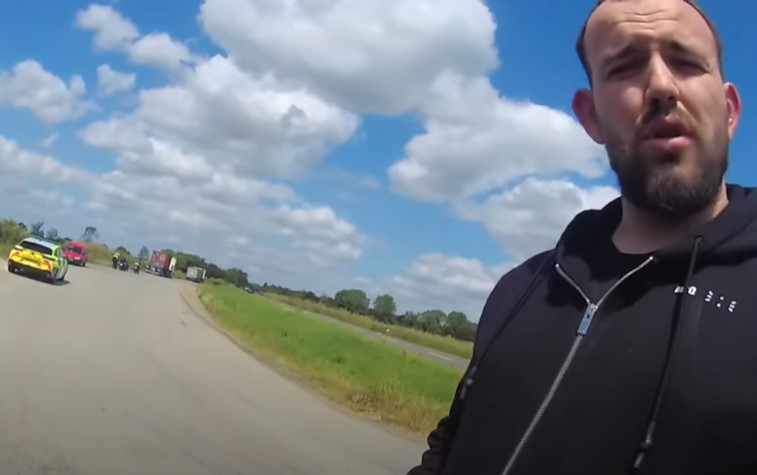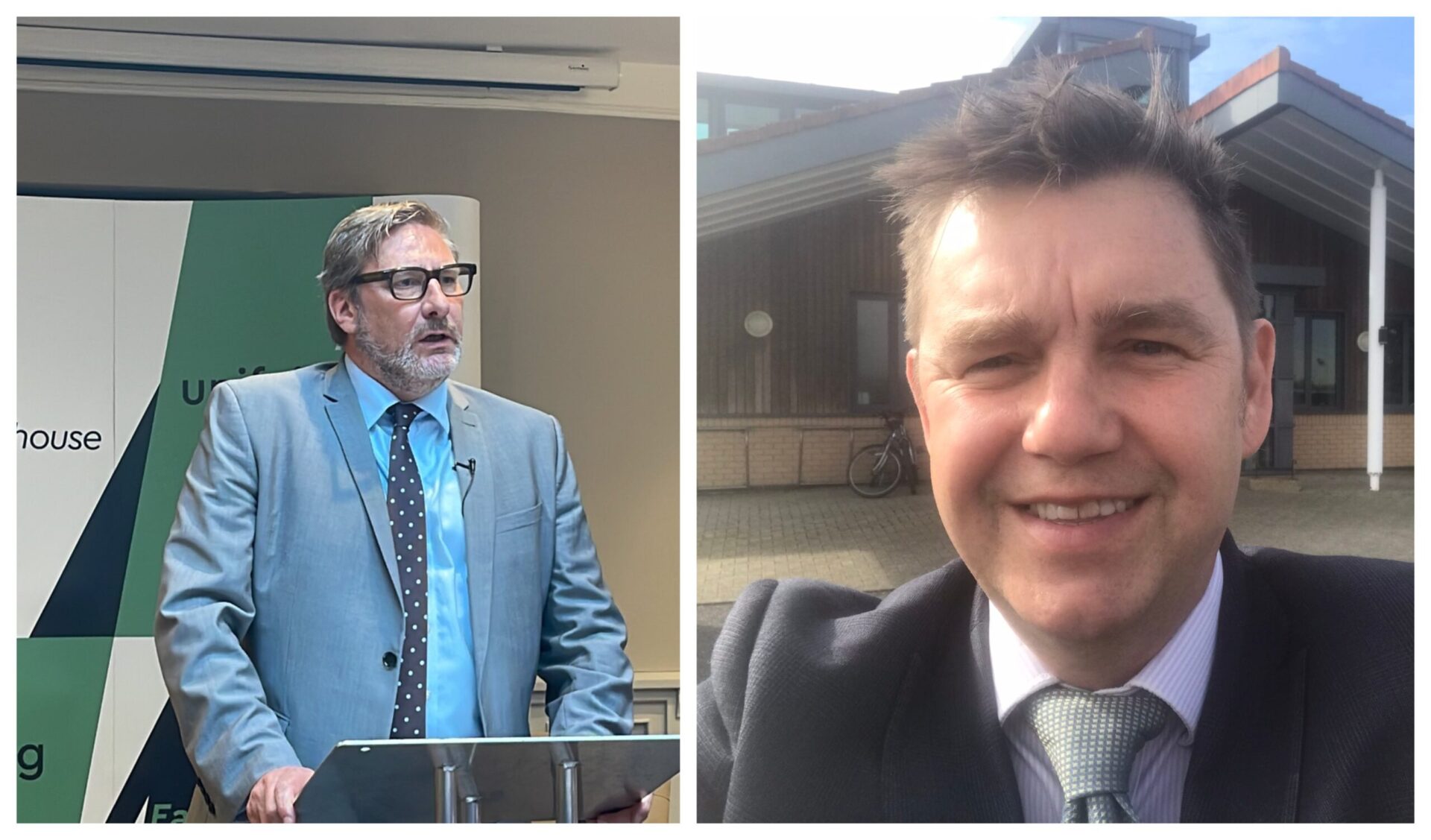Two key political leaders – both from East Cambridgeshire – have clashed over Government proposals for local government reform that could hit Cambridgeshire by 2028. Cllr Anna Bailey, leader of Conservative controlled East Cambridgeshire District Council, has written to the leaders and chief executives of other Cambridgeshire councils about local government reorganisation.
In her opening salvo she tells them she remains “fundamentally opposed to the proposals to enforce unitary authorities in Cambridgeshire,” disagrees with the premise “big is best” and fears the “only consequence I can see for my residents is higher taxes and charges with less responsive and local services”.
She adds: “I am, like all of you, a pragmatist and a realist and want to move our discussions forward with a view to reaching some sort of consensus within the preposterously tight deadlines.”
But her tone, and ambitions for East Cambridgeshire, have been challenged by Cllr Lorna Dupre, leader of the opposition Lib Dem/Independent group and who is also her party’s candidate for Mayor of the Cambridgeshire and Peterborough Combined Authority.
“Councils do change political colour from time to time, and the policies of the current administration of the smallest council in Cambridgeshire cannot be set in stone or bind its much larger successor for ever,” says Cllr Dupre, mindful of the fact that Conservatives only retain control of East Cambridgeshire Council on the casting vote of the chairman.
Cllr Dupre says Cambridgeshire County Council’s Insight team is producing data “to help council officers advise councillors and to help councillors come to conclusions about sensible, workable proposals”.
Cllr Bailey says she is already “seriously concerned by the lack of public consultation and engagement on this issue. I hope in a small way by outlining our approach I can redress at least some of this deficit.
“My focus in the forthcoming months and maybe years will be on the best interests of the residents of East Cambridgeshire. For absolute clarity, that does not mean what is in the interests of East Cambridgeshire District Council or the political party I represent.
“Acknowledging we are the smallest council in Cambridgeshire and the need to maintain our laser like focus on the community, we will not be resorting to redrawing maps and producing our own proposals”.
But Cllr Dupre hit back saying that while Cllr Bailey would not be putting her own proposals or suggestions for new boundaries, “she has set out criteria on which she is prepared to hold discussions with neighbouring councils.
“And these include her administration’s current policies on Council Tax freezes, controversial approach to Community Land Trusts (CLTs), and support for its trading companies.
“She also says she wants to hear ‘proposals which respect our current boundaries and seek an equitable partnership between the constituent parts of any new council’.
“This all does rather seem to miss the point that this process is about creating a new council (not a new partnership of councils—that is what the Combined Authority is), which will be substantially bigger than East Cambs.
And she reminds Cllr Bailey that “councils do change political colour from time to time, and the policies of the current administration of the smallest council in Cambridgeshire cannot be set in stone or bind its much larger successor for ever”.
Cllr Bailey, meanwhile, says her approach should not be portrayed as a reluctance to accept the reality or for that matter an isolationist strategy.
“On the contrary, this is an open invitation to all or any of our partner local authorities to engage in a real dialogue, where we will listen to all proposals to progress matters,” she says.
“Nevertheless, we will make it clear to partners and more importantly our local community, the criteria against which we will be judging and ultimately recommending proposals to our council and the wider community.
“Whilst it may currently seem difficult to formally engage with our community, I will be testing our assumptions with residents now and as we proceed through the process.”

Cllr Dupre feels she has a good instinct for residents of East Cambridgeshire.
“While I wait to see the data, my initial view is that residents across East Cambridgeshire tend to look to Cambridge rather than Peterborough—even more so for those in places like Cheveley, Stetchworth, Bottisham and Burwell,” says Cllr Dupre.
“We use hospital facilities at Addenbrooke’s, FE and sixth form facilities at Hills Road, Long Road, and Cambridge Regional College. We commute to jobs at the Science Park, Biomedical Campus and with other employers.
“Even from Littleport, at the northernmost end of the district, there are direct trains to Cambridge, and the A10 down to the Milton interchange.
“We don’t all do all those things, but a large enough proportion of us do to mean that these should be really important criteria.
“And of course, ultimately, drawing lines on maps will be exactly what the Government’s exercise is all about.
“If councils don’t agree collectively what we think is the best solution, the Government will just pick one of its own choosing. Its policies and priorities will be up to local residents in the elections that follow.
Cllr Bailey sets out three main criteria which she wants to maintain for any future unitary authority that might incorporate East Cambridgeshire.
1: Financial sustainability
“We pride ourselves on our record of financial resilience, zero external debt, ‘commercial with community’ mantra and of course we have frozen Council Tax for eleven years,” says Cllr Bailey.
“Sustainable finances will be even more important given that the new council/s will have ever more competitive and ever-increasing demands on their resources.”
2: Respecting the integrity and identity of local communities
Cllr Bailey says proposals must respect current boundaries and seek an equitable partnership between the constituent parts of any new council.
She says sustainable growth with the community benefits that can bring are vital and quotes as an example the Community Infrastructure Levy “which has been so successful for our communities in East Cambridgeshire”.
3: Support for innovation
Cllr Bailey says future proposals will need to support her council’s community led housing emphasis and her council’s trading companies “which have played such a key part in delivering financial sustainability and first-class services for our residents, including the nationally recognised success of Ely Markets”.

Cllr Bailey tells other leaders: “None of us can promise or predict the priorities and decisions of the new councils but the effectiveness of discussions now and the decisions we make should provide the best possible start for new councils and their residents.
“This is not, first and foremost, about lines on maps, it is much more important than that.
“I hope you take these proposals in the positive spirit they are intended as we work together to progress matters in the next few weeks and months.”
Cllr Dupre added: “If councils don’t agree collectively what we think is the best solution, the Government will just pick one of its own choosing.
“Its policies and priorities will be up to local residents in the elections that follow.”




























